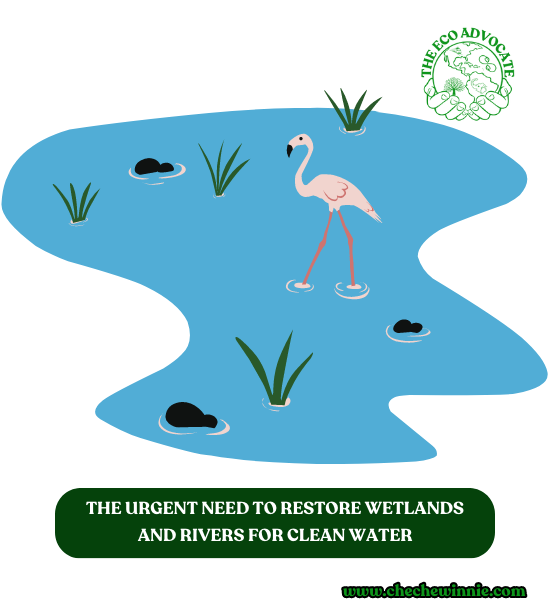Access to clean water is a basic human right that millions of people worldwide still lack. The global water crisis affects both developed and developing nations, leading to waterborne diseases, economic limitations, and inequality. Governments, organizations, and individuals must collaborate to invest in infrastructure, promote sustainable water management practices, and prioritize water security.
Understanding the Water Crisis and Its Impact
The rise in urban inhabitants without clean water access is a concerning trend. Factors such as population growth, pollution, and climate change are exacerbating water scarcity and contamination issues.
Scarcity isn’t just an inconvenience – it’s a threat to human health, ecosystems, and economic stability. Lack of access to clean water leads to diseases, compromises agricultural productivity, and can trigger conflicts over limited resources.
The Role of Wetlands and Rivers in Water Quality
Wetlands and riverine areas play a vital role in maintaining the quality of our precious water resources. These natural ecosystems act as remarkable filters, effectively cleansing water by capturing sediments, absorbing pollutants, and providing a refuge for diverse species. However, the degradation of these essential habitats poses a serious threat to the water purification process.
In addition to their water-cleansing function, wetlands and rivers offer a multitude of ecosystem services that are crucial for our survival. These include flood control, replenishing groundwater supplies, and supporting rich biodiversity. The deterioration of these areas puts at risk the invaluable services we rely on.
To safeguard the health of our water systems and ensure a sustainable future, it is imperative to invest in the restoration of wetlands and riverine areas. These restoration projects encompass the revitalization of natural habitats, effective management of pollution sources, and the overall enhancement of the ecological integrity of these ecosystems.
Although governments bear a crucial responsibility in spearheading water quality improvement initiatives, it is a collective effort that requires commitment from all sectors of society. By implementing and enforcing rigorous policies that safeguard water sources, regulate pollution, and encourage sustainable practices, governments can make a lasting impact.
Raising awareness about the significance of water quality is a pivotal first step. Through advocacy campaigns, social media outreach, and community engagement, the gravity of the issue can permeate public consciousness and spur meaningful change.
Equally important are individual efforts to contribute to water conservation. By embracing water-saving practices, reducing pollution, and supporting local conservation initiatives, each person can play a small, yet meaningful role in preserving our water resources. Together, these individual actions become a powerful force that brings about substantial and lasting positive change.
The Call to Action: Join the Clean Water Revolution
Collaboration between governments, communities, NGOs, and experts is absolutely crucial. By combining our resources, knowledge, and expertise, we can achieve remarkable and lasting results.
Let us pledge to restore wetlands and rivers, guaranteeing clean water for both present and future generations. Every single action we take is significant, and by joining forces, we can confidently shape a sustainable water future.
Conclusion
The increasing number of urban inhabitants without safe drinking water demands urgent attention. The restoration of wetlands and riverine areas is a critical step towards ensuring clean water access for all. By understanding the severity of the water crisis, recognizing the role of nature’s filters, and taking action through collaborative efforts, we can make a tangible difference. Let’s prioritize water quality today for a brighter and healthier tomorrow.

